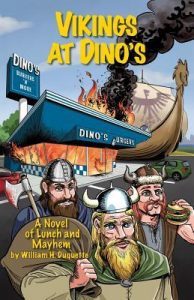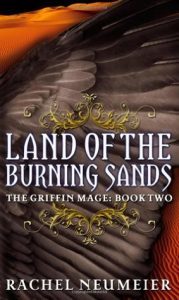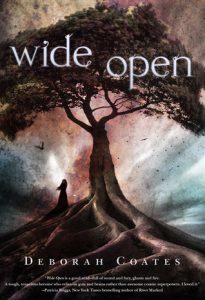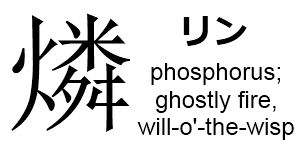Rachel Neumeier's Blog, page 238
March 16, 2018
Recent Reading: Vikings at Dino’s by Will Duquette
So, years and years ago, I used to read the many book reviews Will Duquette wrote at a blog called The View from the Foothills. Will had a way of getting at the heart of a book; the total antithesis of the sort of review where someone writes “I loved/liked/hated this book” and then goes on for a thousand words and yet you know no more about the book after reading that review than before.
Over time Will’s interests changed, as happens, and his blog shifted much more toward posts about religion and software, and I stopped checking in so regularly. But eventually it occurred to me to see if he might be on Facebook, which he is, and thus I learned that Will had written a book called Vikings at Dinos: A Novel of Lunch and Mayhem – I learned this because he posted about getting a proof of the sequel. So I picked up Vikings, and the other day when I was stuck in a hotel room for a long evening, that’s the one I opened up. It turned out to be a good choice.
When the Viking war party burst through the front entrance of Dino’s Burgers & More, it was second nature for me to slide quietly under my table. When you’re small for your age, it’s often useful not to be noticed. Once on the floor I waited on events, peering out as best I could past the swivel seats and wondering what was going to happen. Vikings are not a usual sight at Dino’s.
The Vikings kill some customers and burn down Dino’s, stomp out, board their longship (which is balanced on its keel in the parking lot) and vanish. Things go on like that for some days, with first Vikings and then a Roman legion and then lots and lots of Mongols on little ponies appearing and sometimes disappearing (but more often sticking around to wreak bloody mayhem on the town).
Various things become clear, like for example Michael, the protagonist is “small for his age” because he stopped growing at about ten or eleven years old. He’s twenty something and does stuff with computers. One exchange that made me laugh went like this:
“What if it’s a magic devise? How are you going to figure that out?”
“No problem. Any sufficiently advanced magic is indistinguishable from software.”
Which may be arguable, but is definitely a great line.
There are quite a few nice lines in Vikings, which is a time-travel romp with underlying serious notes. Michael is a great protagonist. That “When you’re small for your age” tagline reappears in different forms; you can chart Michael’s character arc by that line as he becomes much less solitary and much more open to the world.
Michael’s father, it turns out, was a Traveler, a person born with the ability to step easily from one parallel world to another. He passed that ability on to Michael; thus the story that unfolds in Vikings. Unfortunately, Michael’s father was also a “sad, lonely, friendless man;” Michael never knew him, but he basically tried to make sure Michael would be cut off from most ordinary human society too (because he thought a Traveler was more likely to survive that way, evidently). We don’t meet the father in this book, though I wouldn’t be surprised if we do in the sequel. Family relationships are important in Vikings, especially Michael’s relationship with his mother. The foundation is also laid for a possible romance.
What worked for me:
The characters.
I liked Michael a lot, especially as he discovers that quite a few people in the town are actually friends, or would like to be, a startling revelation to a guy who has been something of a recluse. I don’t remember encountering a person who is “small for his age” as a protagonist before. Wait, yes I do: Bee in Fool’s Assassin by Robin Hobb is very tiny and she does take the pov from time to time, but various things about that book annoyed me so much that I could not possibly appreciate Bee. Also, that’s a slooow-paced secondary world epic fantasy, offering a totally different reading experience than a contemporary time-traveling fantasy like Vikings.
Anyway, Michael was believable and likable. He’s competent, but not unbelievably uber-competent; and a decent guy without being exactly nice.
I liked Michael’s mother, though she didn’t seem quite as believable; and Bernie (named after St Bernadette), who learns better than to be quite so quick to leap to unfortunate conclusions as she was at first. There are quite a few minor characters that round out the cast, and I liked them too, especially the police chief.
The plotting:
This is a short novel and even though the protagonist is in his twenties, I’m pretty sure it would work well for a YA audience as well as for adult readers. It’s fast-paced and the plotting is tight, with just a few loose ends left hanging for the sequel; plus Michael’s character arc is pretty much a YA type of arc as he moves from solitary to engaged with his community. If you enjoy stories that involve time travel, and if you have a kid from twelve on up who also likes time travel stories, I’d expect you’d both get into this one.
I don’t much care for time travel myself, as a rule, but I liked Vikings, partly because it’s actually parallel-universe hopping and some pretty weird worlds are thrown in there for contrast. There’s a pretty horrifying dead world that we see several times, among others.
The writing:
The style is light; it’s funny without being heavy-handed about the humor. It’s quick and fun to read, but not too quick or too fun or too quirky – there’s a limit to how light I like my SFF, and this doesn’t go over that line, so I really enjoyed it. The narrative is first-person, where the protagonist’s voice makes all the difference, and here the overall style suits Michael perfectly. The underlying themes about family and community add depth, also without being at all heavy-handed.
I’m pretty sure this book was self-published, so I’ll add that it’s practically error-free. I noticed two minor her-and-I type errors, but this is the kind of thing that might just happen in ordinary dialogue because in conversation people do sometimes say “I” when they mean “me.” I noticed just one actual typo, which is pretty impressive considering how VERY difficult it is to get rid of Every Single Typo, as I am once again finding out as I move toward the release of Shadow Twin.
Definitely recommended, and I’ll be keeping an eye out for the sequel, which I believe will be called Very Truly Run After.
Please Feel Free to Share:









March 9, 2018
Article spinning
Here is a hilarious look at article spinning at The Passive Voice blog:
First The Passive Guy quotes this from Plagiarism Today: “Article spinning is one of the most talked about and least-understood technologies when it comes to online plagiarism…. Article spinning is a technique to generate seemingly original content from old content by replacing words or phrases with synonyms. For example, if I were to write the sentence “The cat walked into the house” an article spinner might reinterpret that as “The feline strolled into the home” or “The kitty wandered into the shelter.”
Then the hilarity ensues as The Passive Guy tries this out with a few well-known paragraphs, including the beginning of the Declaration of Independence, followed by this gem:
Here are the first few sentences of Jack Kerouac’s On The Road:
I first met Dean not long after my wife and I split up. I had just gotten over a serious illness that I won’t bother to talk about, except that it had something to do with the miserably weary split-up and my feeling that everything was dead. With the coming of Dean Moriarty began the part of my life you could call my life on the road. Before that I’d often dreamed of going West to see the country, always vaguely planning and never taking off. Dean is the perfect guy for the road because he actually was born on the road, when his parents were passing through Salt Lake City in 1926, in a jalopy, on their way to Los Angeles.
And the paraphrase:
I principal met dignitary not long following my wife Furthermore i part up. I needed barely gotten over An not kidding disease that i won’t trouble with banter about, but that it required something to do for the miserably weary split-up and my feeling that All that might have been dead….
It goes on from there, but that’s as far as I got with the paraphrase. Since I only made it through two sentences, I guess that makes the paraphrase literally unreadable, at least for me.
I had not previously been aware of any blog called Plagiarism Today, but I’m glad to have learned something about why spam emails are so very, very badly written. If the spam bots are using article spinning, well, that explains that. Evidently article spinning is less useful for that today, but some students are now trying to use free article spinners to hide plagiarism from Turn It In.
For any student who thinks this would be a fine tool to enhance your plagiarism efforts, I have to say … go right ahead. That will totally work.
Please Feel Free to Share:









Sequels that are as good as the first book
From Stubby the Rocket at tor.com: Our Favorite Sequels That Are As Good As the First Book
Great idea for a post! Let’s see which second books are pulled out for this list — gosh, only four! That’s a short list. Here they are:
The Restaurant at the End of the Universe by Douglas Adams
Kushiel’s Chosen by Jacqueline Carey
A Wind in the Door by Madeleine L’Engle
Shadow Scale by Rachel Hartman
I’ve read all of those except the one by Hartman. I think I agree that none of them are letdowns from their respective first books. Click through and read the comments to see why each one was chosen for that list.
Now, let’s expand the list because surely there are plenty more sequels that don’t disappoint. For the purposes of this list, I believe I will leave out of consideration various UF series that really take off at Book 3 or later. Let’s stick just to second books.
Oh, and also in the category of things-that-don’t-count, single really long novels that have been broken in half for publication purposes. So things like Black Out / All Clear by Connie Willis don’t count. The second book has to be an actual sequel.
5. The entire Demon’s Lexicon series by Sarah Rees Brennan, including the second book, The Demon’s Covenant, was solid. This is one of those trilogies where every book has a different protagonist. I liked Mae quite a bit as she took the central role in this second book.
6. Doris Egan’s Ivory series is great and I’ve always been sorry she didn’t go on with the series. The second book, Two-Bit Heroes, puts Theodora and Ran into quite a tense situation. The ending is just priceless.
7. Gemina, by Kaufman and Kristoff, was just as good at Illuminae. Same rip-roaring pace, same weird typographic effects, same crazy plotting, different protagonists but tied into the first book; I just can’t wait for Obsidio, which is coming out later this month, I think.
8. The Shadowed Sun is the second book of NK Jemisin’s wonderful Dreamblood duology. I loved the first book, but I really loved the second book.
9. Not books, but I can’t leave this list without mentioning “Terminator II” and “Aliens,” both of which were SO GOOD and much better than their respective first movies.
10. And one more: Land of Burning Sands, the second Griffin Mage book. This is my personal favorite of the trilogy, so as far as I’m concerned, it certainly is not a letdown from the first. It’s one of the sequels where the protagonists are different even though the plot hooks together with the first book. That is a technique that doesn’t work for all readers, but obviously I like it. I remember how much trouble I had starting it — I kept thinking of YA characters and plots — until I finally said, “FINE, the protagonist is 42 years old, let’s move on from there.” That knocked me out of YA mode at last.
Please Feel Free to Share:









March 8, 2018
Well, this isn’t creepy at all
I don’t have Alexa because I am just not an early adopter for tech things. At best I tend to think, Oh, that sounds cool, someday I’ll look into that. Hence I’m usually about at least five years behind whatever’s cutting edge, often more — sometimes a lot more.
But this doesn’t make me want to run right out and get Alexa:
Alexa is laughing at users and creeping them out
It’s quiet in the house. Nobody else is home and the cat is fast asleep. Then you hear a disembodied woman’s voice let out a short, mocking cackle.
No, you’re (probably) not being haunted, it’s just Amazon’s Alexa voice assistant malfunctioning in a profoundly creepy way.
Some Alexa users have reported hearing an unprompted laugh from their smart speaker devices in the last day. The laugh happens randomly, when nobody is using the device, or in response to request to turn on or off lights…
Ha ha ha! That’s kind of funny in a thoroughly creepy way.
One Twitter user said their Amazon Echo suddenly began listing names of local funeral homes and cemeteries, also unprompted.
I can’t decide it that one sounds more like (a) someone is making this up, or (b) some hacker has quite a sense of humor. I lean toward (a) since if hackers were playing jokes, surely they’d program Alexa to tell people named David, “I’m sorry Dave, I’m afraid I can’t do that.” But perhaps that’s such an old movie now that fewer people would get the joke?
Since apparently all sorts of hackers and companies can use toys and tv and phone apps and who knows what else to spy on users, it doesn’t seem likely Alexa and Siri are very secure. It’s not something I worry about exactly, but I bet this creepy laughing Alexa won’t appeal to many users even if they don’t care about the potential for Amazon listening in to their daily lives.
Please Feel Free to Share:









Favorite Wrinkle in Time moments
Here’s a post that caught my eye: Utah teachers share fave ‘Wrinkle in Time’ moments
Holmstead said that before the students start a new chapter, she has them look at the chapter title and share their thoughts. Then they start reading. Every reader has his or her own image of the scenes and characters, and Holmstead said she keeps hers to herself. She wants to know what connections her students are making, and what kinds of images the book conjures for her young readers. These images, she explained, have changed considerably through the years….“I think it’s because of media, and a lot of different movies that have come out,” she said. “You’ve got all your ‘Transformers’ and ‘Avengers,’ and all these different movies. I didn’t have that growing up, so they see the Earth and they see beyond. It was such a foreign, far-reaching concept when I was their age. It’s not to them.”
I can tell you what moment stuck with me most strongly from Wrinkle in Time: the image of all the little boys bouncing their balls in time. I’m sure you remember the one boy who dropped his ball and was punished for it.
I’m not alone in finding that scene outstandingly creepy. Did you see this bit about a publicity stunt for the movie?
In the bouncing-ball clip, the audience can see Bellamy Young (you’ll recognize her from Scandal) standing on a perfect Technicolor suburban cul-de-sac as the neighborhood kids bounce balls together. It seems normal, except they’re all doing it at the exact same time, using the exact same rhythm, and they’ve all got spaced-out, vacant expressions on their faces. The same thing played out at various locations at Comic-Con, with Disney’s legion of kiddos bouncing their balls in unison around the expo.
Yep, creepy.
Please Feel Free to Share:









March 7, 2018
There are no universal rules for writers
Here is a post at Writer’s Write: John Grisham’s 8 Do’s And Don’ts For Popular Fiction.
Here are the 8 rules, mostly stripped down to just the rule itself. For the comments under each rule, click through to the post.
1. Do — Write A Page Every Day
2. Don’t — Write The First Scene Until You Know The Last
This necessitates the use of a dreaded device commonly called an outline. Virtually all writers hate that word. I have yet to meet one who admits to using an outline.
Plotting takes careful planning. Writers waste years pursuing stories that eventually don’t work.
3. Do — Write Your One Page Each Day At The Same Place And Time
4. Don’t — Write A Prologue
5. Do — Use Quotation Marks With Dialogue
6. Don’t — Keep A Thesaurus Within Reaching Distance
7. Do — Read Each Sentence At Least Three Times In Search Of Words To Cut
8. Don’t — Introduce 20 Characters In The First Chapter
Several of these are questionable, but the one I bolded above is soooo easy for outliners to spit out — You must outline the complete book before you start writing! This method is the only one that works! — and so annoying to those of us who don’t (sometimes can’t) do this.
In a few weeks, when you read Shadow Twin, you will hopefully find that the plot possesses reasonable coherence. In case this sort of thing interests you, I will just tell you up front that I literally did not know what the climactic scenes would involve until I was 100,000 words in. I remember clearly the moment when the ending of the book suddenly fell into place. It did not take very long at all to go back and nudge the earlier part of the book so that it would be in line with the ending.
As for the very last scene, I wrote that way after finishing the book, after Laura Florand told me she found the ending of the earlier draft too abrupt.
Also, this morning I roughly outlined the 4th book of the series, Copper Mountain. Except for the ending. I don’t know what’s going to happen at the end. I decline to worry about this, no matter who assures me that I’m Doing It Wrong if I don’t have a clear view of the last scene when I write the first.
One last note, though.
I did write the entire sequel to House of Shadows because I had the ending scene in mind and wanted to write that particular scene. If you happen to remember that as you read that Door Into Light, maybe you’ll remember this post, compare it to Shadow Twin, and decide for yourself whether you think the books differ dramatically in their respective tightness of plotting. If anything, I would say, Door Into Light is substantially less tight in plotting than Shadow Twin — but read them both and decide for yourself.
—–
Also! To go back to the full list of eight rules: Why bother with a rule about using quote marks in dialogue? Who out there is not using quote marks in dialogue? (Other than Cormac McCarthy.) That does not strike me as super-important rule to put out there if you’re trying to come up with eight important rules for writers.
Look, I hate to criticize without trying to be helpful, so I will just provide a better, more universal set of 8 rules for writers who want to be successful:
1) Finish at least some of the stories you start.
2) Don’t slavishly follow any rules for writers, even the ones promulgated by famous bestselling authors.
3) But do have a decent grasp of standard grammar and break grammatical rules with intent, not by accident.
4) Read a lot in your chosen genre.
5) Read a lot outside your chosen genre.
6) Read nonfiction to deepen your worldbuilding, if that matters to you.
7) Don’t expect your tenth book to be easier to write than your first.
8) Don’t focus on negative reviews.
There you go: Eight rules that I think are a lot more universal — if only because fewer of them are prescriptions and proscriptions about the actual writing process. Those are just always going to be iffy.
Please Feel Free to Share:









March 6, 2018
Saying nothing
From Kill Zone Blog: How Should a Character Say Nothing?
Reacher said nothing has become a Lee Child signature. …I’m sure he puts it in with a bit of a wink and a smile.
In fact, the phrase is now so familiar that the recent book by Andy Martin chronicling Lee’s writing of Make Me is titled Reacher Said Nothing. In the book Lee explains that Reacher “often says nothing. He shouldn’t have to be wisecracking all the time. He’s not into witty repartee. He’s supposed to do things.”
Nothing wrong with that. And though I personally love witty repartee, there are times when a character should stay silent.
How do we do that effectively? X said nothing is an option. I’ve certainly used it myself. But lately I’ve begun to consider other ways.
This is a pretty good post about how to handle a character who is in fact not saying anything.
James Scott Bell identifies four methods for handling silence, all of which are good, effective techniques. I use them all, but I’ve never thought about them before. Here they are:
1) Reacher said nothing.
There’s nothing wrong with “X said nothing.” Sometimes that’s exactly what you want to use.
2) The action beat — The character can do something rather than say something. Bell cites Hemingway’s exchange in “Soldier’s Home,” where the mother says, “I pray for you all day long, Harold.” Then Harold looks at the bacon fat hardening on his plate.
The character can look at anything. You can create a whole different feel depending on what your character looks at. He might look out the window, which gives you one idea of what he’s like; or he might look at his feet, which obviously gives you a whole different idea. Especially if he sighs with boredom in the first instance, say.
3) The thought beat — The character can think something rather than say anything out loud. Here Bell uses the example of a direct thought set into the text in italics –as in one character saying accusingly “You mean to stand there and look me in the eye and pretend you don’t know what I’m talking about?” and the second character thinking Uh oh. He knows.
I don’t usually find myself doing this, though I’m sure I have used a direct italicized thought occasionally. I think this can sound artificial or weird somehow, though I’m equally sure some authors make it sound perfectly natural and smooth. Lois McMaster Bujold drops an occasional single silent word into dialogue, usually or always when a point-of-view character is trying to think of a different word. The sort of situation where someone might say something like, “I’ve just been admiring the –” depraved — “sophisticated decorating choices you’ve made for this room.” She does a great job with those little asides.
4) The perception beat — The character notices something rather than saying anything. Bell uses this example:
“You mean to stand there and look me in the eye and pretend you don’t know what I’m talking about?”
Bill looked at the scuff marks on the floor.
I don’t know. This looks a lot like the action beat. Not sure I think it’s very distinctive. Can perception be used without having your protagonist look at anything? Let’s see:
“You mean to stand there and look me in the eye and pretend you don’t know what I’m talking about?”
Bill couldn’t believe Alex’s smugly satisfied tone.
There. That’s a perception or perhaps reaction beat. I’d expect it to be followed by more of a reaction or perhaps a stronger action of some kind.
Now, this all makes me think of Deb Coates’ Wide Open series, where Hallie’s father is basically inarticulate and Coates builds his character with his silence, which is at least as demanding as building a character through witty repartee. He is actually one of my favorite secondary character in the series.
This is a bit different from handling moments of silence from the protagonist, but it’s another component of handling a character who isn’t saying anything.
Please Feel Free to Share:









Worldbuilding with language
Macsbrains posted this link in a comment to the silent-letters-in-English post: More than anyone ever needed to know about the kanji for phosphorus
It is a delightful post even if you start off knowing nothing whatsoever about Japanese kanji, which was my starting point. Here is part of the post:
When Japan decided it needed a kanji for the element phosphorus, it just repurposed 燐, which originally referred to any sort of mysterious ghost light–foxfire, will-o’-the-wisps etc. You can remember 燐 because the left half is the fire radical 火 and the right half is clearly the spawn of Satan the same phonetic element used in 隣 (リン、となり neighboring). That right half is made up of 米 (uncooked rice) and 舛 (a picture of two feet pointing different ways, like the bottom half of the kanji 舞 “dance”).
No but seriously why is there rice in there?
My kanji dictionary tells me it wasn’t always rice. It started out as 炎 (flames) and got simplified weird….
Somewhere along the line someone was like WTF I DON’T HAVE ROOM TO WRITE ALL THIS FIRE and wrote 米 instead. Then someone else was like WTF WHY DOESN’T THIS HAVE THE FIRE RADICAL and stuck more fire on there.
… And although I don’t know anything about Japanese kanji (a tiny bit more than I did before reading this post, though!) I love this historical oddity of a kanji starting off with the brush strokes for fire, being simplified so that it looked like rice, and then later someone saying “Why rice? Don’t we need fire? and putting fire back in so now the kanji includes both rice and fire…
This reminds me a bit of this moment in Steven Brust’s The Phoenix Guards series:
What followed was ten years of almost constant war between the Dragonlords of the Empire and the Easterners, during which the Easterners occupied the area and fought from the surrounding mountains. The Serioli, who departed the area to avoid any of the unfortunate incidents that war can produce, left only their name for the place, which was “Ben,” meaning “ford” in their language. The Easterners called the place “Ben Ford,” or, in the Eastern tongue, “Ben gazlo.”
After ten years of fierce battle, the Imperial Army won a great victory on the spot, driving the Easterners well back into the mountains. The Dragonlords who had found the place, then, began calling it “Bengazlo Ford.” The Dragons, wishing to waste as little time on speech as possible, shortened this to Benglo Ford, or in the tongue of the Dragon, which was still in use at the time, “Benglo ara.” Eventually, over the course of the millennia, the tongue of the Dragon fell out of use, and the Northwestern language gained preeminence, which rendered the location Bengloara Ford, which was eventually shortened to Bengloarafurd. The river crossing became the Bengloarafurd Ford, which name it held until after the Interregnum when the river was dredged and the Bengloarafurd Bridge was built. Should anyone be interested in finding this delightful city, it still stands, but the city was renamed Troe after the engineer who built the bridge, either because the citizens were proud of their new landmark, or because the engineer’s name was short.
Which is surely more extreme than anything in the real world (probably? Maybe?), but is deeply amusing. To me this seems reminiscent of the thing with fire-rice-fire in the Japanese kanji described above.
Language is a wonderful thing.
Please Feel Free to Share:









March 5, 2018
A little busy this past weekend
Just so you know why I didn’t have time to write a real post, or even poke around for something cool to draw to your attention:
Conner and Kimmie before this weekend’s show. They had a bath Friday evening. On Saturday morning, I misted their coats, smoothed down the fur, and put on these drying coats — their coats are meant to be flat and straight, not sticking up in little tufts all over the place. After lots of rain, Conner’s coat in particular was not lying properly flat.
I didn’t put them in this crate, by the way. I turned around and they had both gone in there.
The bath-and-misting-and-drying-coat thing was then repeated for Sunday. On Sunday, they had to be in the ring (an hour and a half away) at 8:00 AM. I was up at four and on the road at six.
Here are the results of the weekend’s shows:
Conner got Winners Dog on Saturday, plus Best of Winners, so that was a point for him. He got Reserve Sunday, so no point for him that day. The same near-age-mate has beaten him three times now (and he’s beaten that dog once), so he is three points behind Kimmie.
Kimmie got Winners Bitch and Best of Opposite Sex both days, which takes her up to nine points, which is all the singles she can use. Now she needs majors. She has been in the running for one point at nine shows and she has gotten Winners Bitch and the point in all nine. She is doing just great in the puppy classes and I would like to try for majors quick before she ages out of the puppy classes. It’s not that she isn’t beating older girls right now, she certainly is, but she might have a harder time beating them if it’s not clear to the judge how young she is. Being in the puppy classes means not having to have so much coat!
I’m not sure where to take her to try for majors, so for the first time ever I am talking to a professional handler about possibly taking Kimmie for a few carefully selected weekends. A pro goes to a lot more shows that are farther away and potentially bigger. We’ll see! Kimmie and Conner are both entered again at the end of the month and we will meet this professional handler then. I want her with a handler who will treat her like the pet she is, not like a kennel dog.
Meanwhile, Conner and Kimmie back home, hoping for low-flying birds and slow squirrels:
Please Feel Free to Share:









March 2, 2018
What good are silent letters?
Recently I came across a fascinating if brief question-and-answer about silent letters in English, as in the b in “debt,” for example.
Here is the bit I particularly want to pull out:
One important and often overlooked reason for having silent letters in the spelling of English words is because spelling in English is meant to do much more than tell you how to pronounce a word. For one thing, it can also tell you about the history of the word, its origins and its evolution. Not all languages have this property in their written forms, but English does.
It can also serve to create heterographs out of homophones, which helps when reading. For example, consider the word pronounced /raɪt/. That can be any of:
wright
right
write
rite
As soon as you see it on the printed page, you know which of those four words it is. You don’t have to puzzle it out. This increases reading speed and proficiency.
Hah, always knew there was a good reason not to rail against weird spelling in English.
Now, I will add, if you think this
/raɪt/
is confusing or awkward as a pronunciation guide, you should definitely click through and glance at the much (much) more extensive discussion of the pronunciation of “right” (etc) when you add in elements like accent and dialect.
The post concludes thus:
As you can see from the list above, you do not have to spell English with “silent” letters. However, when you really do go to the trouble to spell it out phonetically, you thereby:
Cut yourself off from all your literature, so you can kiss your culture goodbye.
Make it impossible to distinguish homophones.
Disconnect a word’s history from its spelling.
Force people to learn a much larger alphabet, one that requires several hundred letters — have fun typing those, too.
Make it so that you can no longer communicate with anybody who lives two miles away, let alone two (or twelve!) thousand miles away.
But because English has silent letters, none of that applies. This is a blessing, you know. You should be happy nearly to the point of being overjoyed that English has silent letters. They are a major win, and without them, we would all be lost.
There’s no point in my trying to improve on that heartfelt declaration, so I just produce it here for you all to enjoy. If you have a moment, you should certainly click through and read the whole thing.
Please Feel Free to Share:
























